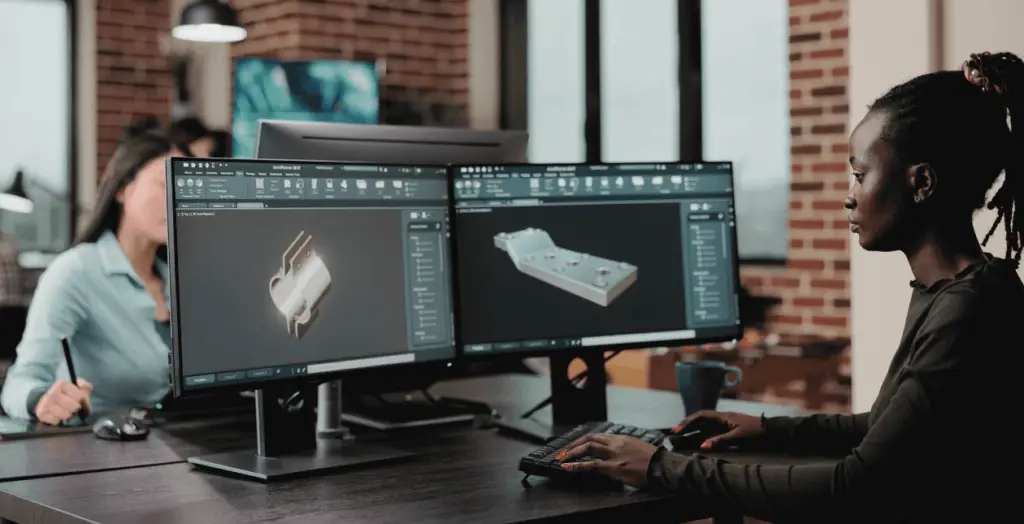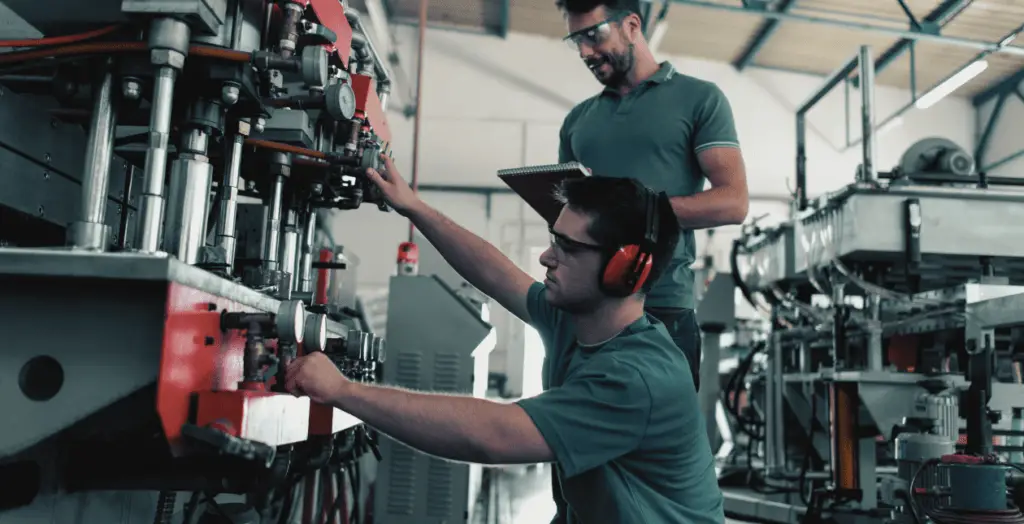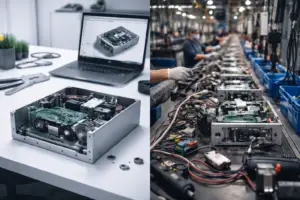In the ever-evolving world of product design, creating innovative and high-quality products is only part of the challenge. Ensuring these products can be efficiently and cost-effectively manufactured is equally crucial. This is where Design for Manufacturing (DFM) comes into play. By focusing on DFM principles, designers and engineers can streamline the manufacturing process, reduce costs, and deliver better products to market faster.
What is Design for Manufacturing (DFM)?
Design for Manufacturing (DFM) is an approach that emphasizes the importance of considering manufacturing aspects during the product design phase. The primary goal is to create products that are easier and more economical to produce without compromising quality or functionality.

key Aspects of DFM in Product Design
1. Material Selection
- Cost-Effectiveness: Choosing materials that are cost-effective and readily available can significantly impact the overall manufacturing cost.
- Machinability: Ensuring materials are easy to process with available manufacturing technologies helps in maintaining efficiency.
- Consistency: Opting for materials that offer consistent quality and performance is crucial for reliable product manufacturing.
2. Component Design
- Standardization: Using standard components and fasteners simplifies assembly and reduces costs.
- Simplicity: Designing parts that are simple and easy to manufacture, avoiding complex geometries, reduces the need for special tooling.
- Minimize Parts: Reducing the number of parts in a product simplifies assembly and decreases the risk of defects.
3. Assembly Considerations
- Ease of Assembly: Products should be designed for easy assembly with minimal tools and operations.
- Automation: Considering the use of automated assembly processes can increase efficiency and consistency.
- Modular Design: Employing modular design principles allows for easier upgrades and maintenance.
4. Tolerance and Fit
- Realistic Tolerances: Specifying tolerances that are achievable with standard manufacturing processes is essential.
- Interchangeability: Ensuring parts fit together correctly and can be easily replaced if necessary enhances the product’s durability and serviceability.
5. Manufacturing Processes
- Compatibility: Selecting manufacturing processes that are compatible with the design requirements ensures smooth production.
- Efficiency: Opting for the most efficient processes reduces production time and costs.
- Scalability: Ensuring that processes can be scaled up for mass production if needed helps in meeting market demands.
6. Quality Control
- Inspection: Designing parts that are easy to inspect and measure simplifies quality control.
- Consistency: Ensuring the design allows for consistent quality in manufacturing is vital for maintaining product standards.
- Defect Prevention: Incorporating design features that help prevent defects and facilitate quality control enhances overall product reliability.
7. Cost Considerations
- Tooling Costs: Minimizing the need for custom tooling and expensive manufacturing setups reduces initial investment.
- Production Costs: Designing with an eye towards reducing overall production costs, including labor, materials, and overhead, is crucial for competitive pricing.
- Life Cycle Costs: Considering the total cost of ownership, including maintenance and end-of-life disposal, ensures long-term value.
8. Sustainability
- Material Efficiency: Using materials efficiently to reduce waste supports sustainability goals.
- Recyclability: Designing products that are easy to recycle or dispose of at the end of their life cycle promotes environmental responsibility.
- Energy Efficiency: Considering the energy consumption of manufacturing processes and aiming to reduce it contributes to a greener manufacturing approach.

Benefits of DFM
Implementing DFM principles offers numerous benefits, including:
- Reduced Costs: By minimizing material waste, reducing labor, and optimizing manufacturing processes, production costs are significantly lowered.
- Improved Quality: Higher quality products with fewer defects and better performance are achieved.
- Faster Time to Market: Streamlined manufacturing processes enable quicker production and faster delivery to market.
- Increased Competitiveness: Products Design for Manufacturing are often more competitive due to their lower costs and higher quality.
By integrating DFM principles early in the design process, companies can enhance the manufacturing of their products, leading to better outcomes for both the manufacturer and the end user. Embracing DFM not only improves the efficiency of production but also ensures that the final product meets the highest standards of quality and performance.



